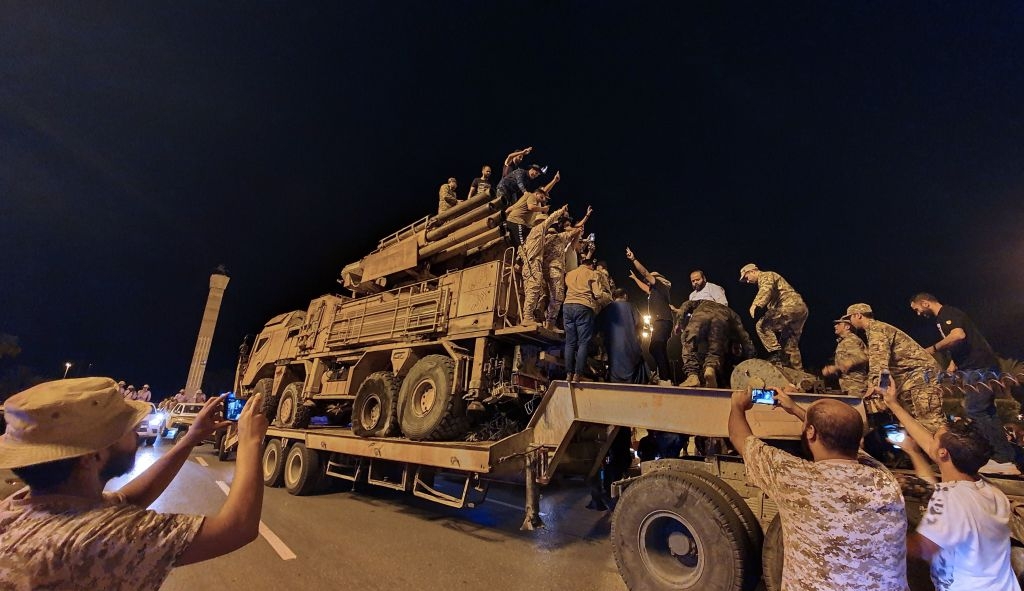Erdoğan's Libya Campaign: Another Neo-Ottoman Design
by Burak Bekdil • June 3rd
- Erdoğan knows that every political adventure outside Turkish borders increases his popularity, especially at a time when economic hardships could prune his approval at home.
- Further escalation may turn Libya into a second proxy for Turkey's war theater, after Syria. There, Turkish and Russian interests remain deeply conflicting. Turkey wants to overthrow President Assad and to replace his regime with Sunni jihadists; Russia wants Assad in power and is fighting Sunni jihadists.
- Libya is fast becoming another challenge for a man who loves military challenges -- but tends to lose most of them.
- A military confrontation between Turkey and Russia in Libya would be too risky a venture even for a ruler who does not want to miss a single opportunity to revive his country's once glorious imperial past -- especially at a time when Russian President Vladimir Putin apparently wishes to seal his country's imperial dream of having a permanent presence in the Mediterranean -- in Syria and Libya.
- For Turkey, the Libya campaign is part of a sectarian (pro-Sunni) war. Erdoğan wants a loyal, Turkey-friendly regime in Libya, one that could be useful for restoring to power in Egypt the Muslim Brotherhood, another Islamist Erdoğan ally, like Hamas
- Russia's Putin also appears keen to have his second permanent military presence in the Mediterranean after Syria.

As hostilities between the two sides in the Libyan civil war escalated recently in favor of Erdoğan's man in Tripoli, Turkey's proxy involvement has become less covert. Pictured: Forces loyal to Libya's Government of National Accord parade a Russian-made Pantsir air defense system in Tripoli on May 20, 2020, after it was knocked out by armed Turkish drones and captured at al-Watiya airbase. (Photo by Mahmud Turkia/AFP via Getty Images)
Ironically, even during the Ottoman era (from early 16th century to 1912) Libya was divided into two parts: one linked to Tripoli in the west and the other linked to Benghazi in the east. Even then, the country largely resembled today's division between an internationally-recognized government in Tripoli and its adversaries in the east.
More than a century after the last Ottoman soldiers left Libya following an Italian invasion in 1911, Turkey's neo-Ottoman leader, Recep Tayyip Erdoğan, who has apparently long harbored dreams of reviving the Ottoman Empire, at least revived the Libyan war theater with Turkish soldiers fighting a proxy war in the desert.

No comments:
Post a Comment